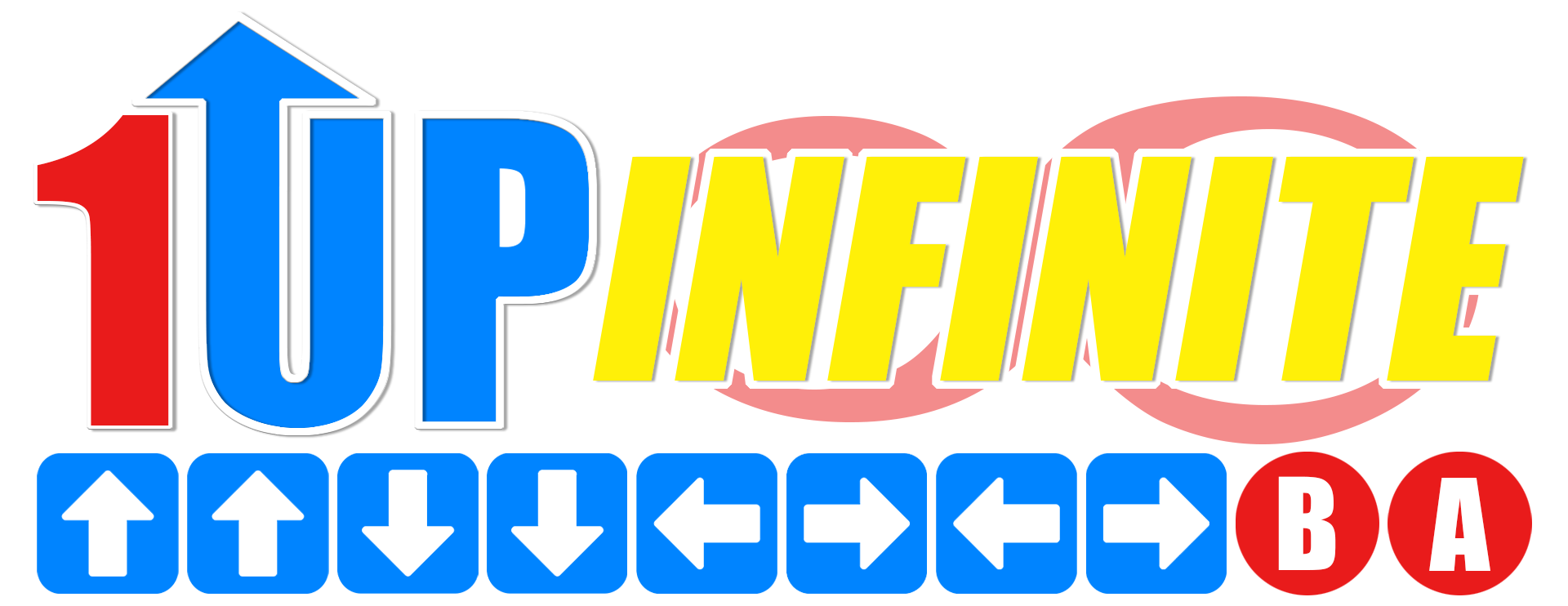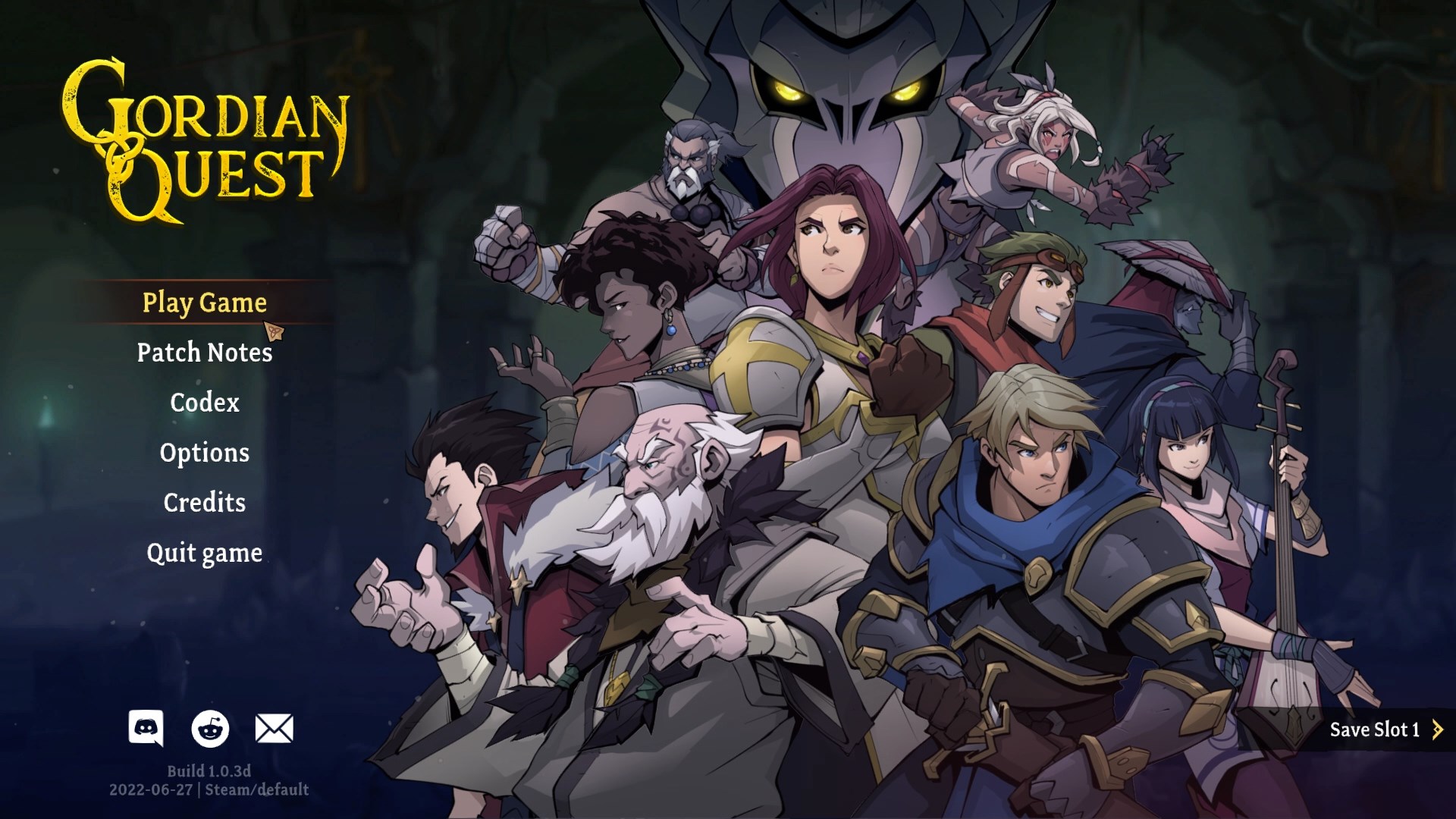Gordian Quest
Shuffle Your Deck For Initiative
A few weeks ago I've looked at the demo for Power Chord, one of the many deckbuilding RPGs that's expected to release later this year. One of my positive first impressions was the emphasis on a "party" system in the ever-budding deck builder genre. Each class had a specific niche to play within the party and discovering combos increased the demo's replayability for me. So when I heard about Gordian Quest and saw a similar party system utilizing cards and decks, I was excited to give this game a try.
After playing Gordian Quest for about a little over an hour, I felt satisfied. This was the game that I felt captured the "deckbuilding RPG" element correctly as it does the one thing needed to break the mold. It gives players an agency in the choice between a roguelite, roguelike, and an RPG campaign. In almost all deckbuilding games, players are placed in a random seed and upon death are forced to start from the beginning. Rather than "doing a little bit better" each time, Gordian Quest allows players to follow a tabletop RPG-style campaign.

All Good Campaigns Rendevous At A Tavern
Before the player begins the campaign mode, they must choose a "main hero" to lead the party. There are 10 heroes to choose from, each representing an archetype ranging from a bard to a cleric among others. Each hero has four starter decks to choose from, offering a different variant of the main class. The Druid, which was the hero I chose, could choose between a front-line brawler and a pet class. The Cleric can be a tanky Crusader-like class or a healer. This increases the number of starting possibilities to 40 different classes.
While the number may seem overwhelming, it's easy to build a party around your main character as you can swap party members out at any given time. As I mentioned earlier, the player has the choice of playing their campaign as a roguelite or roguelike. The difference is that with the former if the party dies the campaign ends. In the latter, the party isn't automatically healed. Of course, the player can decide to run the campaign where if the party falls, they get sent back to town. I understand deck building and rogue games go hand-in-hand but I wish more games would give players this option. It's a good way to provide world-building and world-building is one of Gordian Quest's strong suits.

Save The Town From Bandits, Fight The Undead, The Usual
My Gordian Quest experience was like playing two games at the same time, a Dungeons & Dragons-inspired title and the combat itself. Starting with the former, once players select their main character, they are told that the local town is being overrun with the undead and bandits. Shortly after, the player arrives at a tavern where they can meet their first party member. After the player chooses whoever is at the tavern, they are told to help fortify the town's defenses. Various facilities like equipment shops, the blacksmith, and the church are helpful in keeping the party healthy. As the player helps out around town, more beneficial facilities begin to open up.
On the map, there are several nodes that may trigger events that may help or harm the party. An early example is an enemy encounter involving a group of bandits that doesn't notice the party. The player can decide to set up traps unnoticed depending on the roll cast by a d20. Modifiers based on a party member's stat are included, ranging from Strength, Intelligence, and Dexterity. Like most TTRPGs, rolling a 1 and a 20 equals a crit fail and success respectively.

Combat Is Reminiscent Of Older Flash-based RPGs
Party members can also increase their chances of getting a successful roll by using one of their skills. This comes at the risk of suffering from fatigue, which limits the player's deck in the next battle. Aside from the ingenuity of these events, the combat system is just as impressive. When I covered the Power Chord demo, I mentioned how each role is locked to a specific card. In Gordian Quest, every character has their own deck and is turn-based. This also means each party member has their own "mana pool" rather than a shared one.
Each party member can move between each lane, with other party members having a unique "trigger" effect. Early on, an NPC foot soldier will attack directly after the player should they be in the same row. With strategic movement, the player can anticipate where the opponent will strike, move to an advantageous lane, and be free from damage. Combos are fun to try and having a great party composition is rewarding, but it's a matter of choice. Is it best to build a party around the various events a player may come across? Would it be best to prepare a party for the worst-case scenario and power through a failed check?

Gordian Quest Proves Taking Risks Makes Rewarding Returns
These are the questions I didn't expect to have when I played this game, but it made me want to play more to answer these questions and many more. At the time of this writing, I played a bit more at home and cleared Act 1 of the campaign. Before starting, the game warns that the campaign takes at least 16 hours to complete.
That said, expect a fleshed-out review where I cover more of the semantics behind Gordian Quest. Will I mess up my build or find something that would make me into an accidental genius? Who knows, but I'm excited to see where my ragtag group of adventurers lead me.

Gordian Quest is now available on Steam.

